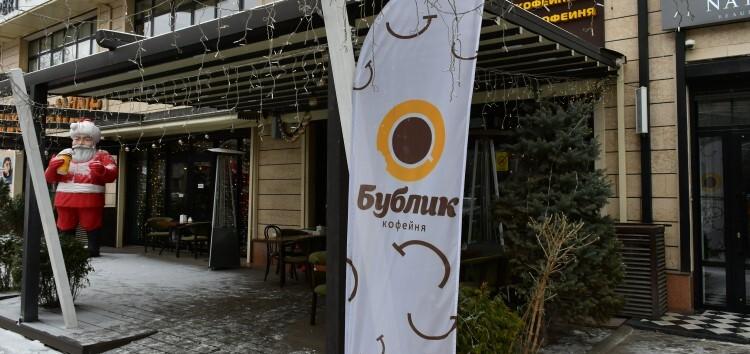Kyrgyz Sustainable Energy Financing Facility supports energy-efficient food production facility
When it’s cold outside, what better way to warm up than to have a cup of coffee or cocoa in a cozy coffee shop? And if you are in Bishkek, you should definitely go to Bublik. It’s one of the city’s most famous coffee chains, named after a local bread roll – a cross between a Turkish simit and American bagel, served with different fillings.
“We opened our first coffee shop in 2015 and tried many different concepts,” says Sardar Umarov, one of Bublik’s founders. “At first, we wanted to run a coffee shop, offering coffee and different snacks, like Starbucks. Later, we switched concept and decided to serve other food as well. Today, we run five coffee houses located mainly in the city’s downtown area, close to offices and parks. They are equally nice for business lunches or family dinners.”
Making business green and sustainable
After seeing a presentation by the Kyrgyz Sustainable Energy Financing Facility (KyrSEFF) at one of its marketing events in Bishkek, Sardar decided he wanted to construct a new food production facility and approached KyrSEFF’s engineers. He later obtained a loan from a partner bank of the European Bank for Reconstruction and Development (EBRD) to construct an energy-efficient workshop.
The workshop is designed around the preparation of semi-finished food products and desserts for Bublik coffee shops. It also contains a learning space for training staff and new joiners. It has been constructed in line with KyrSEFF’s recommendations – with heat insulation, energy-efficient windows, LED lighting and refrigeration equipment.
With all of these measures, Bublik will save around 354.2 MWH/year and save some 64 tonnes of CO2 emissions a year.
Bublik will receive an economic incentive of up to 10 per cent of the total loan amount from the European Union.
KyrSEFF recently celebrated its 10th anniversary and announced the launch of a new US$ 50 million KyrSEFF III facility to address pressing environmental issues in the Kyrgyz Republic, such as water stress, soil erosion and degradation, heat stress and hydrological variability.
“I am very excited about our new energy-efficient building,” says Sardar. “It brings not only economic benefits, but also contributes to a more sustainable and green future for our children. If we decide to construct a new coffee shop, we will certainly consult KyrSEFF engineers again.”




